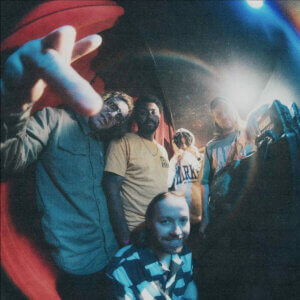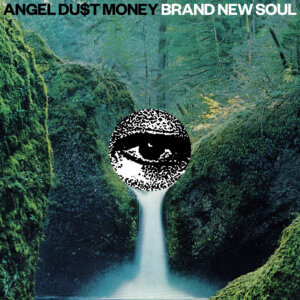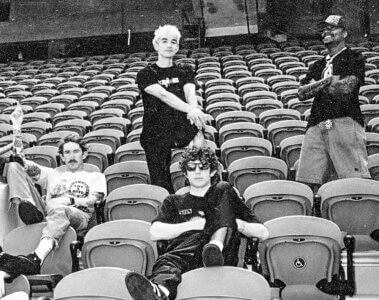Our Interview With Christopher Owens

Christopher Owens has always had a reputation for doing what he wants musically, which is what makes him such a rare character in our current landscape. Nothing he does is the work of PR posturing or strategy — he is a man who follows his heart and ambitions, whether its his sudden departure from Girls in 2011, or his choice to debut as a solo artist with a concept album with recurring motifs and themes. His second solo record A New Testament, finds him following his muse further, with a collection of songs that travel deep into the heart of Americana, with affectations of country, gospel, rockabilly, and folk. The songs themselves are pooled together from a long stretch of time and they all follow a concept and style Owens has been wanting to fulfill for a while.
Notoriously known for his troubled background, Owens talks to us about approaching songs from different personas, how religious upbringing plays a part in his songwriting, and how being a solo artist allows him to venture even further into new concepts.
NT: I feel like listeners might approach this album as a new venture for you – to put out a gospel-tinged country album — but the lyrics I received indicate timestamps dating back as early as 2008. Has it been in your mind to make an album like this for a while?
Christopher Owens: Yes, it has. I think people hear a few records from someone and then think they know all about that person. I think in my case this wouldn’t be true. I love a lot of different types of music and I enjoy exploring how I can work in different ways. But I also don’t feel the subject matter on this record is any different from anything I’ve done in the past. I think my songs have a pretty consistent approach lyrically.
NT: Have you always had an affinity for Americana music, or did an appreciation for it grow later in life?
CO: I always have, yes.
NT: Where and when was it recorded?
CO: It was recorded in San Francisco in September 2013, at a studio called Decibelle
NT: Do you feel like having a religious background is an important factor in making a record that sounds like this? Does this record’s sound have any relation to your childhood?
CO: I think my religious background gives me a different approach to music, period. And to life in general. Music is something sacred for me. I was at odds with religion my entire upbringing, but I took a lot away from it. Having to push so hard to be an individual in my life has made me have stronger feelings about things. I’m a pretty serious person, I have strong feelings. I feel a lot from spiritual music because I think I can relate to the yearning and longing in it.
NT: Did you feel you were less able to pursue projects that honed in on one subject or style when you were in Girls?
CO: No, I just didn’t have the desire at the time. I think as I’ve learned about recording and working with musicians a desire to achieve specific goals has developed. I’ve learned a little about organization in general. Of course now I do have the ability to invite specific musicians to work on albums with specific goals, and that’s great. I feel like I’m exploring the talents of others as well as my own ideas now. In a lot of ways I’m right there with the listener.
NT: Is “Stephen” the first song you wrote addressing your childhood in the Children of God?
CO, it’s just the first time I said it word for word. We are the some of our experiences. All of my songs address my childhood.
NT: Are all your songs written from a confessional, first-person standpoint, or do you ever approach songs from a third person storyteller aspect? If the latter, could you give an example?
CO: Sometimes I put on an attitude that I know is adventurous for me… But who we want to be is a big part of who we are. I feel I always write about myself in a very real way, the playful characters I take on in “Big Bad Mean Mother Fucker” or “Heart Akin The Wind” are characters I sometimes actually become. That’s part of the magic of art.
NT: Can you tell me about the musicians who play on the album/appear on the cover?
CO: They’re all great people, people I’m very happy to have the honor of working with. They take the album to a place I could never take it on my own. They’re crucial to this record.
NT: Can you describe how the name A New Testament relates to this material?
CO: It’s funny but I don’t really have an explanation. I’d like it to mean whatever people want it to.
NT: Even though these songs were written over several years, do you look at them as being part of a unified concept a la what you did on Lysandre?
CO: Yes, it’s an album, and that’s what and album is. That’s what makes an album greater than the sum of it’s parts. Lysandre was very different though in the sense that it was written all at once about one story. Lysandre is the greatest work I’ve ever undertaken, for me. I think each album I do is a puzzle piece to the big picture I will eventually leave behind.
NT: Do you still not have a cellular? (as mentioned in “A Heart Akin to the Wind”?)
CO: Ha, yes. But that line was written about being on tour in Europe or Asia or Canada or South America… Where I do not have a cellular. So it’s a feeling I know often.
Latest Reviews
Tracks
Advertisement
Looking for something new to listen to?
Sign up to our all-new newsletter for top-notch reviews, news, videos and playlists.









